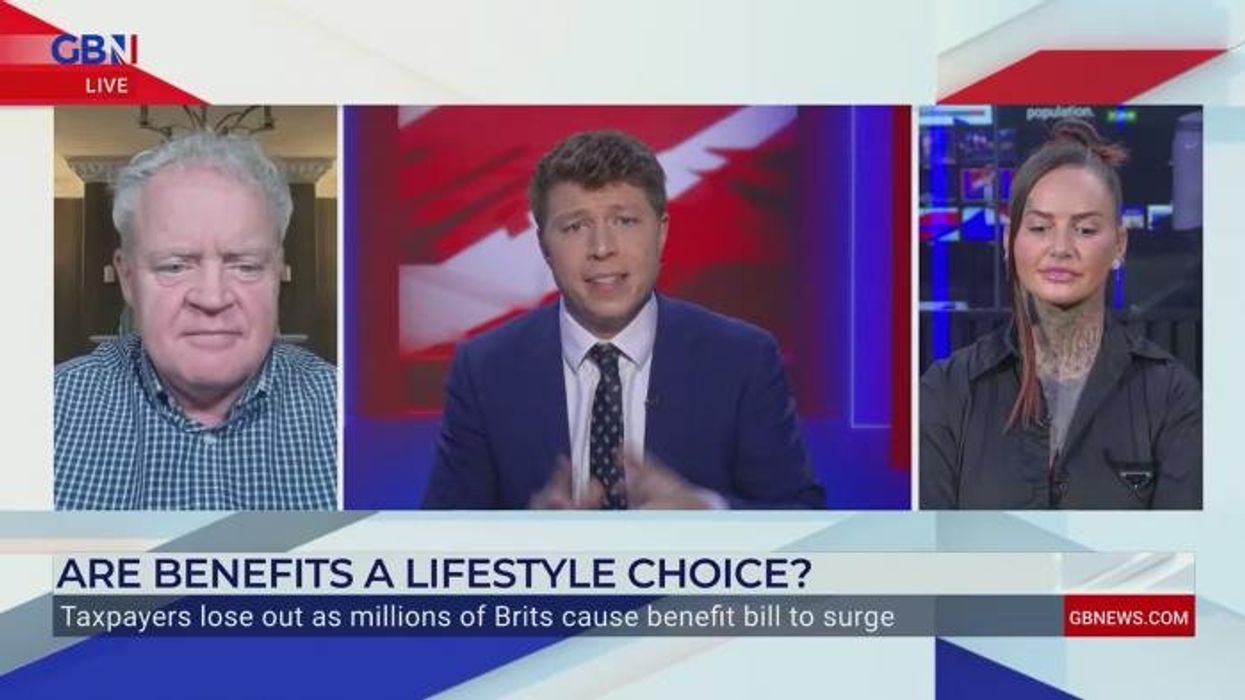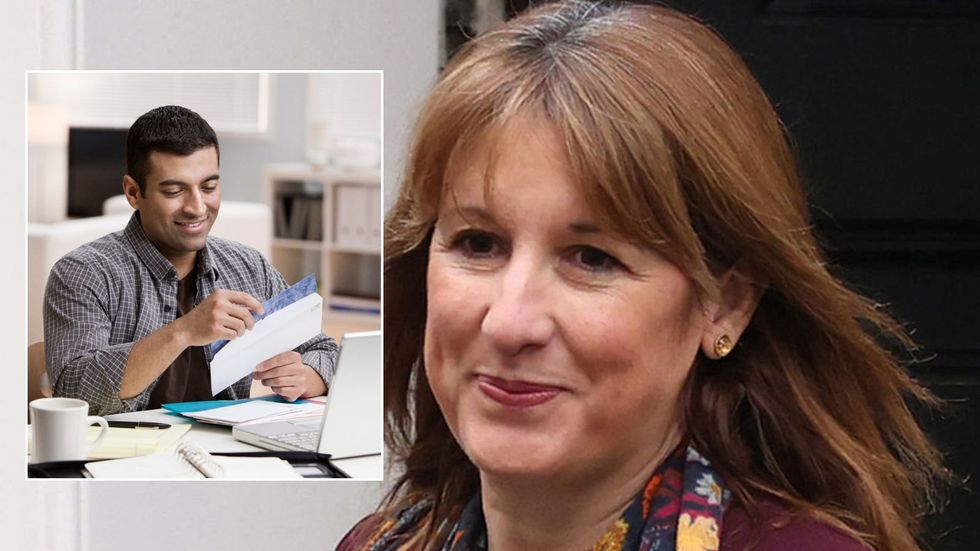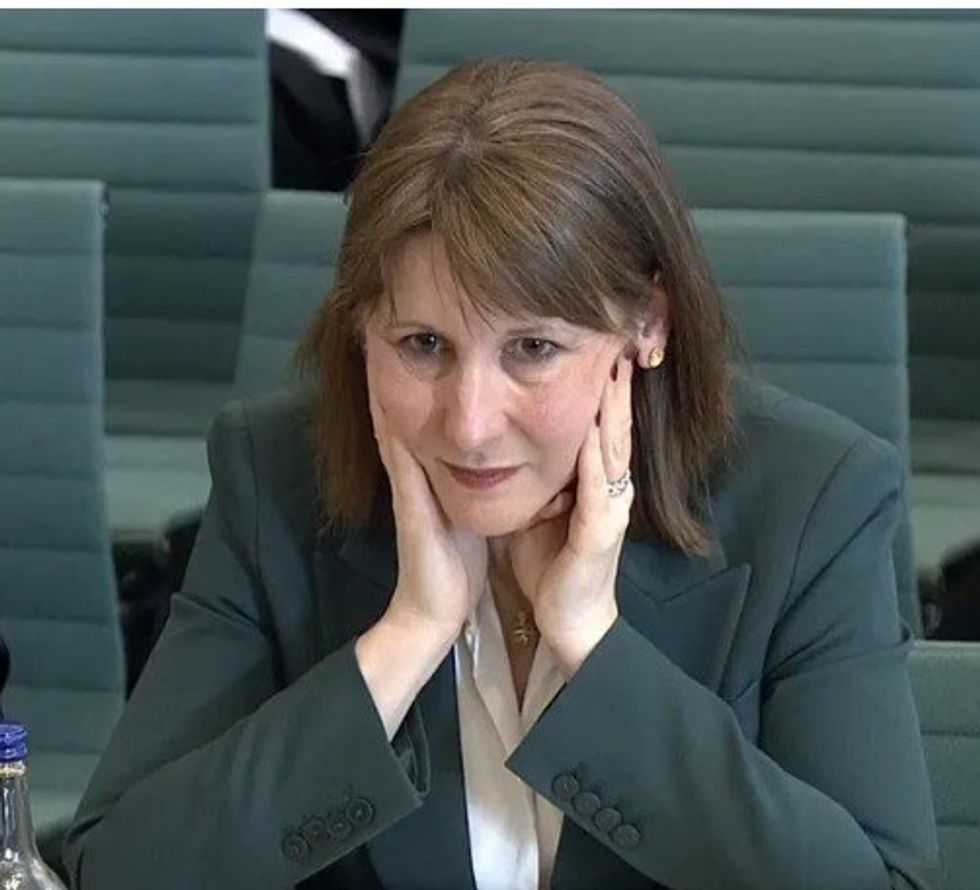Rachel Reeves announces ANOTHER National Living Wage increase as Chancellor declares 'economy isn't working'

GB News

The changes will impact 2.7 million workers across Britain
Don't Miss
Most Read
Rachel Reeves has announced yet another increase in the National Living Wage, after admitting that the "economy isn't working" for low-income people.
Labour has confirmed significant wage rises for Britain’s lowest-paid workers, accepting the Low Pay Commission’s recommendations for new minimum rates that will take effect from April 2026.
In a video message, Chancellor Rachel Reeves said 2.7 million workers will see their incomes increase as ministers respond to continuing cost-of-living pressures.
Under the plans, the National Living Wage for workers aged 21 and over will rise by 4.1 per cent to £12.71 per hour.
The National Minimum Wage for those aged 18 to 20 will increase by 8.5 per cent to £10.85 per hour.
The Treasury said the new rates would amount to a meaningful annual boost in earnings for full-time employees.
Workers on the National Living Wage will receive about £900 more per year under the new level.
Officials said the increases demonstrate the Government’s commitment to ensuring that workers receive fair pay while maintaining economic stability.
Full-time workers on the National Living Wage will gain an extra £900 annually, and those aged 18 to 20 on the National Minimum Wage will see an increase of £1,500 per year.
This comes as part of a wider set of measures the chancellor looks set to introduce, including freezing income tax thresholds and scrapping the two-child benefit cap.

Chancellor Rachel Reeves says 2.7 million workers will see their incomes increase
|GETTY
Jane Gratton, deputy director of public policy at the British Chambers of Commerce, said: "Every above-inflation wage increase leads to higher business costs, lower investment and fewer opportunities for individuals."
"Making employment more expensive risks deepening the jobs crisis among young people."
Conservative business spokesman Andrew Griffith said: "At a time when we face the risk of 'generation jobless' it is reckless of the government to jack up wages for 16 to 20 year olds beyond inflation with no plan to help businesses hire.
'In fact their tax rises and employment red tape are doing the opposite."
The Resolution Foundation, a leading left-wing think tank which until last year was led by Torston Bell, Parliamentary Secretary to the Treasury, has slammed the move.
They said that the "big increase in youth rate risks exacerbating job struggles for young people".
Its principal economist Nye Cominetti said: "These steep increases risk causing more harm than good if they put firms off hiring."
Ministers said the new framework continues progress towards establishing a single adult wage rate.
The larger rise for young workers supports this objective by narrowing the gap between age-based pay bands.
Paul Nowak, General Secretary of TUC said: “The Government is delivering on its promise to make work pay.
“With living costs stubbornly high, an above-inflation pay rise will make a real difference to the lowest-paid.
“Putting more money in people’s pockets is good for workers and good for the economy as it goes straight back into our high streets and local businesses.
“And sticking with plans to scrap youth rates is absolutely the right call. Young workers have bills like everyone else and deserve a fair day’s pay for a fair day’s work. It's right they see a larger rise as youth rates are phased out”
LATEST DEVELOPMENTS:
 Rachel Reeves is set to deliver the Budget tomorrow | GB NEWS
Rachel Reeves is set to deliver the Budget tomorrow | GB NEWS About 2.4 million workers will benefit from the National Living Wage increase alone.
The Government has also announced that apprentices and workers aged sixteen and seventeen will see their minimum hourly rate rise by six per cent to £8.
Ministers stressed that the recommendations had been carefully evaluated to balance worker pay with the sustainability of businesses.
The Treasury said following independent expert advice ensures a responsible approach to wage-setting.
Ms Reeves addressed the nation’s economic challenges in her statement, saying: "I know that the cost of living is still the number one issue for working people and that the economy isn't working well enough for those on the lowest incomes."
There are, however, concerns over the impact on businesses of this rise.
Portsmouth's Reform UK representative Councillor George Madgwick has previously said that employers are moving away from hiring youths.
He said: "Young people are being harmed by the increases in national wage."
"The mentality from the boardroom was, we now shift from employing 18, 19, 20-year-olds to people that are older.
"Politicians need to start being honest with the general population – we need to be having these difficult conversations."

Youth Employment UK welcomed the announcement
|GETTY
Rachel Reeves added the new wage levels would provide proper recognition for workers’ contributions.
She said: "That's why today I'm announcing that we will raise the National Living Wage and also the National Minimum Wage, so that those on low incomes are properly rewarded for their hard work."
She highlighted the impact on young workers entering the labour market.
"These changes are going to benefit many young people across our country, getting their first job."
The Chancellor also said she would outline wider steps to ease living costs in her upcoming Budget, adding that she was "determined to cut the cost of living for everyone".
Youth Employment UK welcomed the announcement, describing the changes as "a vital and necessary step in the government's ongoing journey to make work pay for everyone".
The group said its 2025 Youth Voice Census identified low pay and rising living costs as major barriers for young people seeking employment.
The organisation also noted the impact on businesses, saying: "We also recognise the significant cost pressures this places on business, meaning the forthcoming Budget must provide the support and stability employers need to invest in youth jobs and training."
The Government pointed to its wider support for businesses, including a corporation tax cap at 25 per cent, business rates reform and recent trade agreements with the US, EU and India.
Ben Harrison, Director of the think-tank Work Foundation at Lancaster University, said that the rise has the potential to help ease the cost of living pressures facing low-paid workers, although it's far from certain they will feel the benefit in their pockets.
"The reality is that sustained price rises risk eroding the financial benefits workers stand to gain.
"Only 42 per cent of those earning less than £25,000 stating pay is keeping up with the cost of living.
"It’s ultimately critical that the rate of inflation returns to the Bank of England target in 2026 if this is to represent a significant real terms pay rise for the 2.4 million low-paid workers who will receive it."
Our Standards: The GB News Editorial Charter










